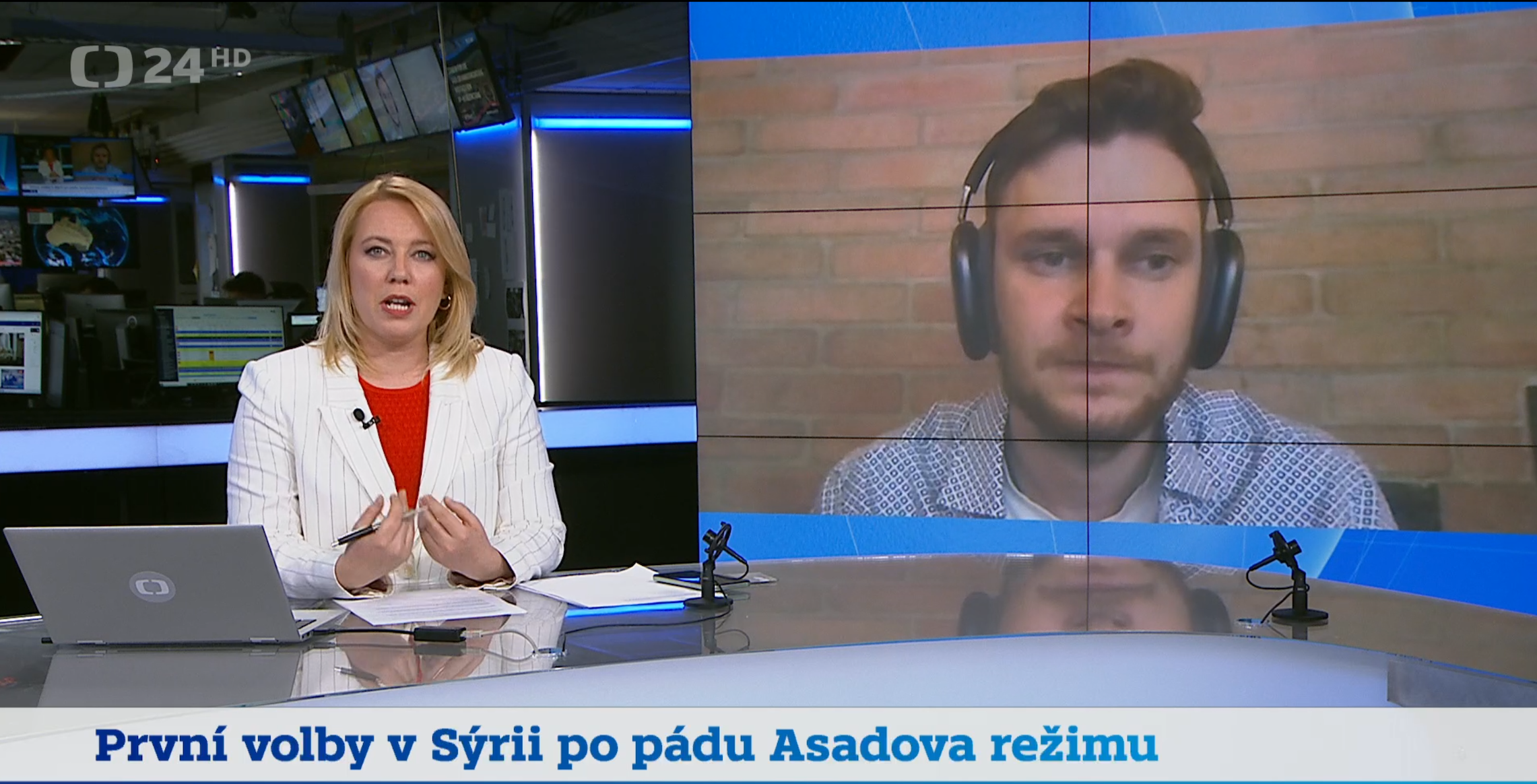Commentary on the Syrian Parliamentary Elections for ČT24
Date of publication: September 16, 2025

On 15 September 2025, Filip Sommer, Director of the Prague Center for Middle Eastern Relations (PCMR) at CEVRO University, commented on the ongoing preparations and course of the Syrian parliamentary elections. These are the first parliamentary elections since the fall of Bashar al-Assad’s regime on 8 December 2024. How will the elections take place, and what do they mean for the future of Syria? Why were some provinces excluded from the process, and how does the international community, particularly the West, view the elections? And will they bring legitimacy to the new government? Answers to these questions can be found in the attached recording.
The specific interview for ČT24 on Monday, 15 September (from 1:32:04) is available here.
Context
Syria is preparing for new parliamentary elections. Out of a total of 210 seats in the so-called People’s Assembly, two-thirds are to be chosen by local committees (pre-selected by the High Electoral Commission and approved by the president), while the remaining one-third will be appointed directly by President Ahmed al-Sharaa. These will therefore not be direct elections in which Syrian citizens would vote for specific political parties (as political parties were banned after the fall of the regime, and a new law on political parties, whose drafting may take several years, is still pending).
For each seat, 150 pre-selected members are to agree on a single winner (with a mandate of 2.5 years).
Thus, neither Syrian citizens inside the country nor Syrians living abroad will participate in the elections. The current Syrian government argues that the country is not yet ready for direct elections. There is no updated census (the last one dates back to 2011), no proper voter registry, and millions of people remain internally displaced or abroad.
The provinces of Suwayda (due to ongoing instability in the area, see more here), Raqqa, and
Hasaka have been excluded from the elections. All three are currently outside the control of the Syrian interim government; Raqqa and Hasaka are under the authority of the Kurdish administration within the Democratic Autonomous Administration of North and East Syria (DAANES). Negotiations between Damascus and the Kurds on Syria’s future governance continue, though so far without major results (aside from the signing of the so-called March Agreement on 10 March 2025).
In broader terms, the elections represent another stage in filling the institutional (in this case legislative) vacuum left after the fall of Bashar al-Assad’s regime. Previous stages included the appointment of Ahmed al-Sharaa as president, the formation of a government cabinet, the organization of a national conference (intended to bring together all components of Syrian society), and the drafting of a temporary constitution.
The new parliament will play a crucial role in drafting a permanent constitution, building state institutions, and reforming legislation, all of which will be vital to ensuring the country’s further development while maintaining stability.

